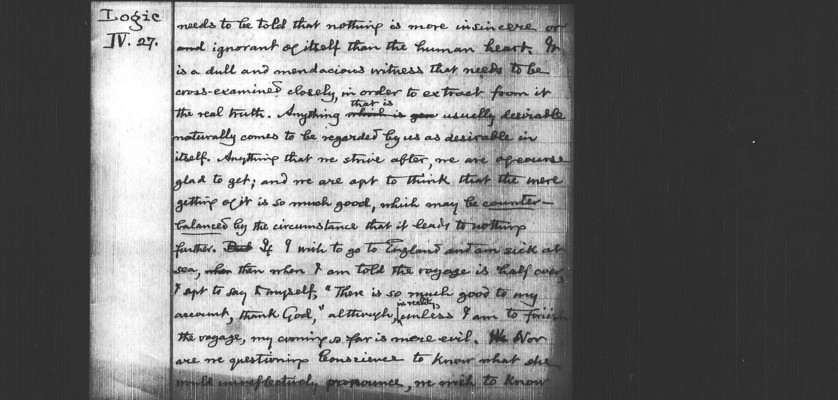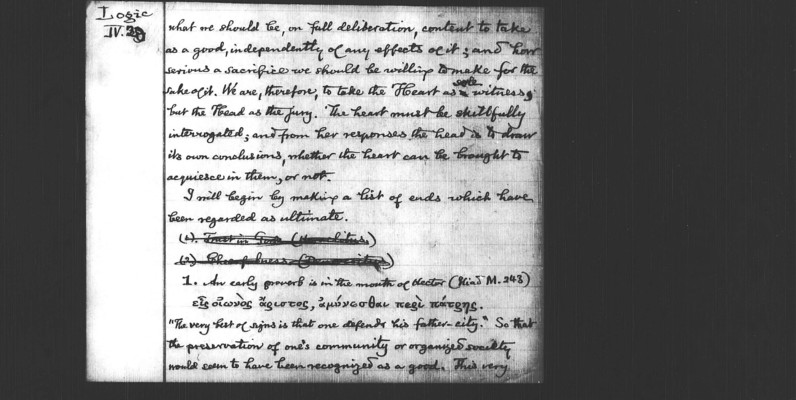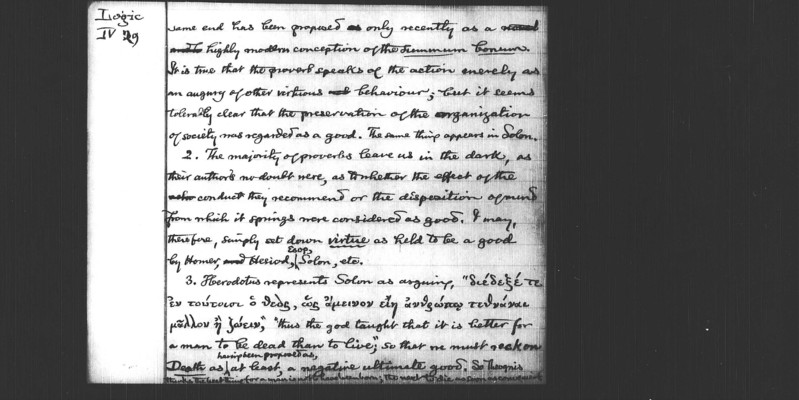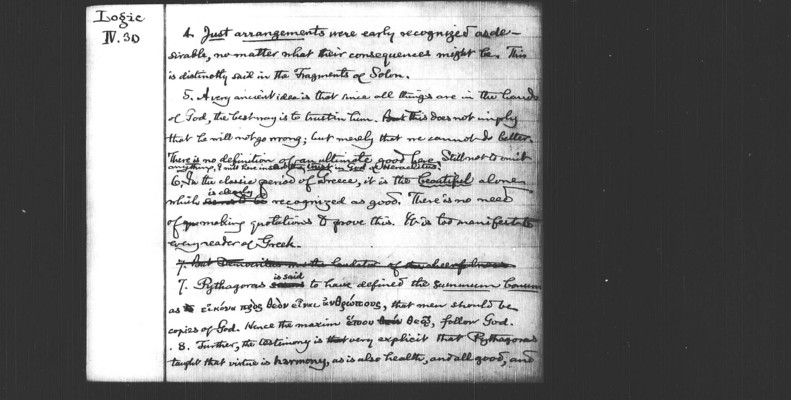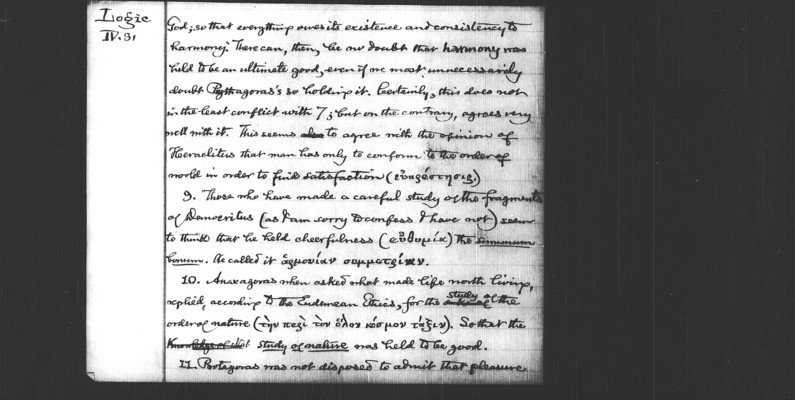Pages
16
Logic IV. 27.
needs to be told that nothis is more insincere or and ignorant of itself than the human heart. In is a dull and medacious witness that needs to be cross examined closely in order to extract from is the real truth. Anything that is usually desireable naturally comes to be regards by us a desireable in itself. Anthing that we strive after we are of course glad to get and we are apt to think that the mere getting of it is so much good, which may be counter-balanced by the circumstance that it leads to nothing further. If I wish to go to England and am sick at sea, then when I am told to voyage is half over, I apt to say to myself "There is no much good to my account, thank God" although in reality unless I am to [fairish] the voyage, my coming so far is more evil. Nor are we questioning conscience to know what we would unnefectively pronouce we wish to kn
17
Logic IV. 28 what we shold be on fall deliberation content to take as a good independently of any effects of it and how serious a sacrifice we should be willing to make for the sake ot it. We are therefore to take the heart as witness bu the head as jury. The heart must be skillfully interrogated and from her responses the head is to draw its own conclusions whether the heart can be brought to acquiesce in them or not. I will begin by making a list of end which have been regarded as ultimate. 1. An early proverb is in the mouth of nectar (Hiad M. 243) [??????]. "The very best of signs is that one defends his father-city." So that the preservation of one's community or organized society would seem to have been recognized as a good. This very
18
Logic IV 29
same end has been proposed only recently as a highly modern conception of the [Summun?] [Conum?]. It is time that the proverb speaks of the action merely as [augmy?] of other virtuous behavior but is seemed tolerably clear that the presentation of the organization of society was regarded as a good. The sme things appears in Solon. 2. The majority of proverbs leave us in the dark as their authors no doubt were as to whether the effect of the conduct they recommend or the disposition of mind from which it spring more considered as good. I may therefore, simply set down virtue as held to be good by Homer, Hesiod Esop Solon etc. 3. Herodotus represents Solon as arguing, [text in foreign language] thus the god taught that it is better for a man to be dead than to live, so that we myst reckon Death as having been proposed as at least a negative ultimate good. So Theognis thanks the best time for a man is not to have been born the next to die as soon as convenient.
19
Logic IV. 30 4. Just arrangements were early recognized as desirable no matter what their consequence might be. This is distinctly said in the Fragments of Solon. 5. A very ancient idea is that since all things are in the hand of God, the best way is to trust in him. This does not imply that he will not go wrong, but merely that we cannot do better. There is no definition of an ultimate good here, still not to omit anything, I will [instant?] trust in God of Hereaclitus. 6. In the classic period of Greece, it is the beautiful along which is closely recognized as good. There is no need of making quotations to prove this. [He?] is too manifests every reader of Greek. 7. Pythagoras is said to have defined the [summun?] Consum as [foreign language text] that men shold be copies of God. Hence the maxim [foreign text] follow God. 8. Futher the testimony is very explicit that Pythagoras taught that virtue is harmony as is also health and all good and
20
Logic IV. 81 God so that everything owes its existence and consistency to harmony. There can the be no doubt that harmony was held to be an ultimate good even if we most unnecessarily doubt Pythagoras's so holding is. Certainly this does not in the least conflict with 7 but on the contrary agrees very well with it. This seem to agree with the opinion of Heraclitus that man has ony to conform to the order of world in order to find satisfaction [foreign text]. 9. Those who have made a careful study of the fragments of [Danoeritus] (as I am sorry to confess I have not) seem to think that he held cheerfulness [foreign text] the summum Corum. He called it [foreign text]. 10. Anaxagoras when asked what made life worth living replied according to the [Eudemean?] Ethics for the study of the order of nature [foreight text]. So that they study of nature was held to be good. 11. [Pythagoras?] was not disposped to admit that pleasure
